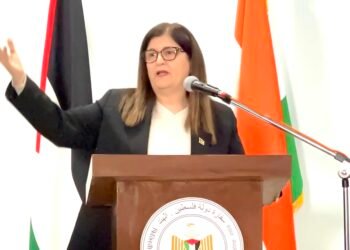DEARBORN, Michigan: Arab American supporters of former U.S. President Donald Trump are expressing a mix of relief and skepticism after the announcement of a Gaza ceasefire deal brokered by Trump a diplomatic breakthrough that some in the community had long hoped for.
For lifelong Democrat-turned-Trump supporter Samra’a Luqman, the ceasefire feels like vindication after months of backlash for defending Trump’s approach to the Middle East.
“It’s almost an ‘I told you so’ moment,” said Luqman, a Yemeni American activist in Dearborn. “No other president could have forced Netanyahu to accept a ceasefire.”
While some Arab American Trump loyalists hailed the agreement as a potential turning point, many remain wary that Israel might violate it, as in past truces in Gaza and Lebanon.
“We’re all holding our breath,” said Mike Hacham, a Lebanese American political consultant. “It’s not a peace deal it’s just the end of a bloody war. The thousands of lives lost on both sides aren’t coming back.”
The deal the most significant diplomatic progress since the Gaza war began in 2023 includes a full ceasefire and the release of the last 20 Israeli hostages out of 250 taken by Hamas. More than 67,000 Palestinians have been killed, according to Gaza health officials, and U.S. mediation efforts had repeatedly stalled before Trump’s latest intervention.
However, deep mistrust of Israel persists among Michigan’s Arab American community, estimated at over 300,000 residents. Months of Israeli airstrikes in Gaza, Lebanon, and even Qatar have hardened attitudes. For many, the ceasefire offers fragile hope rather than closure.
Trump’s renewed travel ban on several Muslim-majority nations and crackdowns on pro-Palestinian campus protests have also left Arab American voters uneasy. Despite helping Trump win Michigan in 2024 by more than 80,000 votes reversing his 2020 loss — many Arab American voters feel they have received little representation or influence in his administration.
“We supported him believing he’d stop the war and recognize our suffering,” said Imam Belal Alzuhairi, who appeared alongside Trump in 2024. “But people are still angry. The travel ban reopened old wounds.”
Alzuhairi said he now plans to withdraw from politics to focus on his community. “Politics became soul-consuming,” he said.
The Trump administration, sensing growing discontent, has dispatched Special Envoy Richard Grenell, a Michigan native, to re-engage with Arab American leaders. Grenell met community figures in Dearborn, where he faced sharp questions about arms sales to Israel, the travel ban, and U.S. silence on Arab Christian persecution.
“I know these leaders well they want and deserve access to decision makers,” Grenell said. “The Arab and Muslim communities in Michigan are key to winning the state.”
Grenell acknowledged frustrations but stressed that Trump remains “committed to peace around the world” and that outreach efforts would continue well before the 2028 election.
Meanwhile, younger Arab American activists remain cautiously optimistic yet skeptical. Ali Aljahmi, a 20-year-old Yemeni American whose pro-Trump campaign videos reached over a million views on X, said:
“Trump promised a lot. He came here, talked about peace, but we’ll judge him by what he actually does. Three years from now, we’ll see where things stand.”
As the dust settles on the Gaza ceasefire, Trump’s Arab American base in Michigan faces a defining moment between cautious hope and political disillusionment. Whether this deal restores their trust or deepens their divide will shape not only Michigan’s electoral map but also the future of Arab American political identity in the U.S.
-Andrea Shalal



















